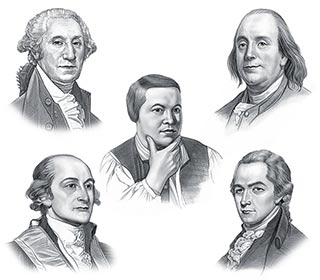Colonial America - Land of the Brave
Definition of the Townshend Acts
The Meaning and Definition of the Townshend Acts: The Townshend Acts of 1767 were a series of laws which set new import taxes on British goods including paint, paper, lead, glass and tea and used revenues to maintain British troops in America and to pay the salaries of some Royal officials who were appointed to work in the American colonies.
The names of the Townshend Acts
The names of the Townshend Acts of 1767 were:
- Townshend Act: The Revenue Act of 1767
